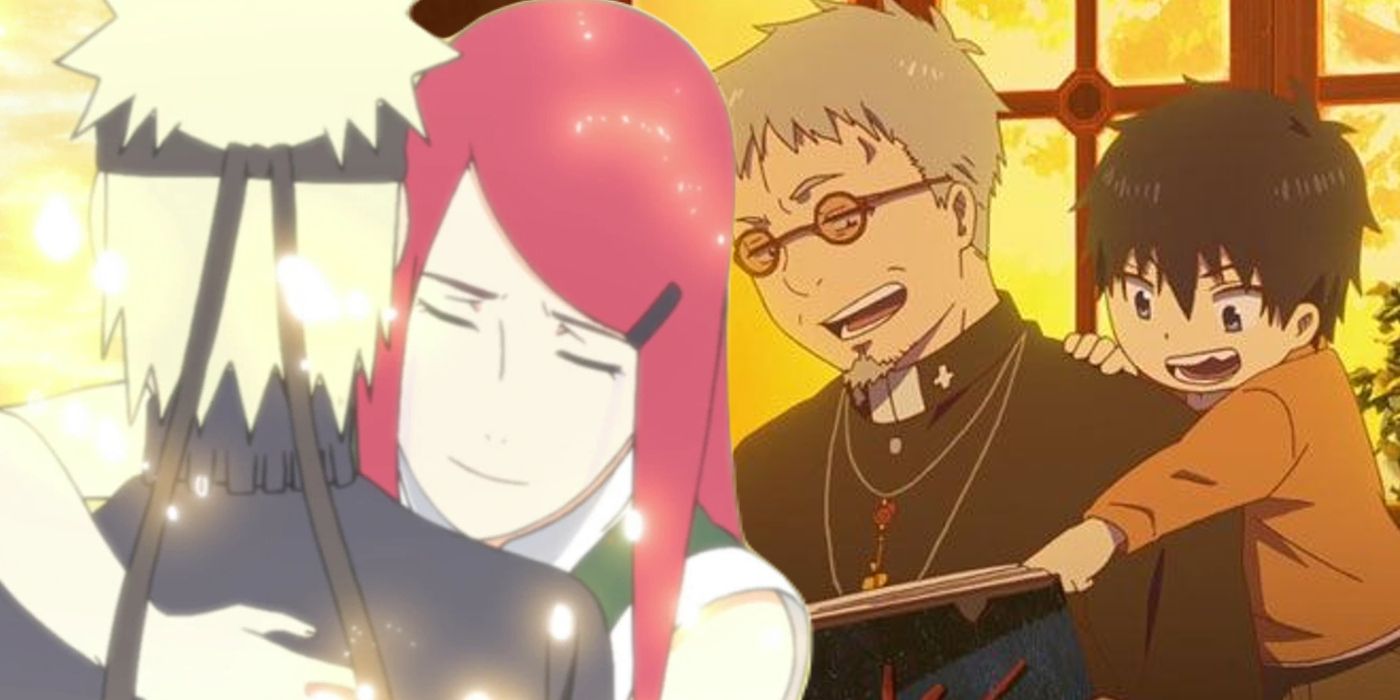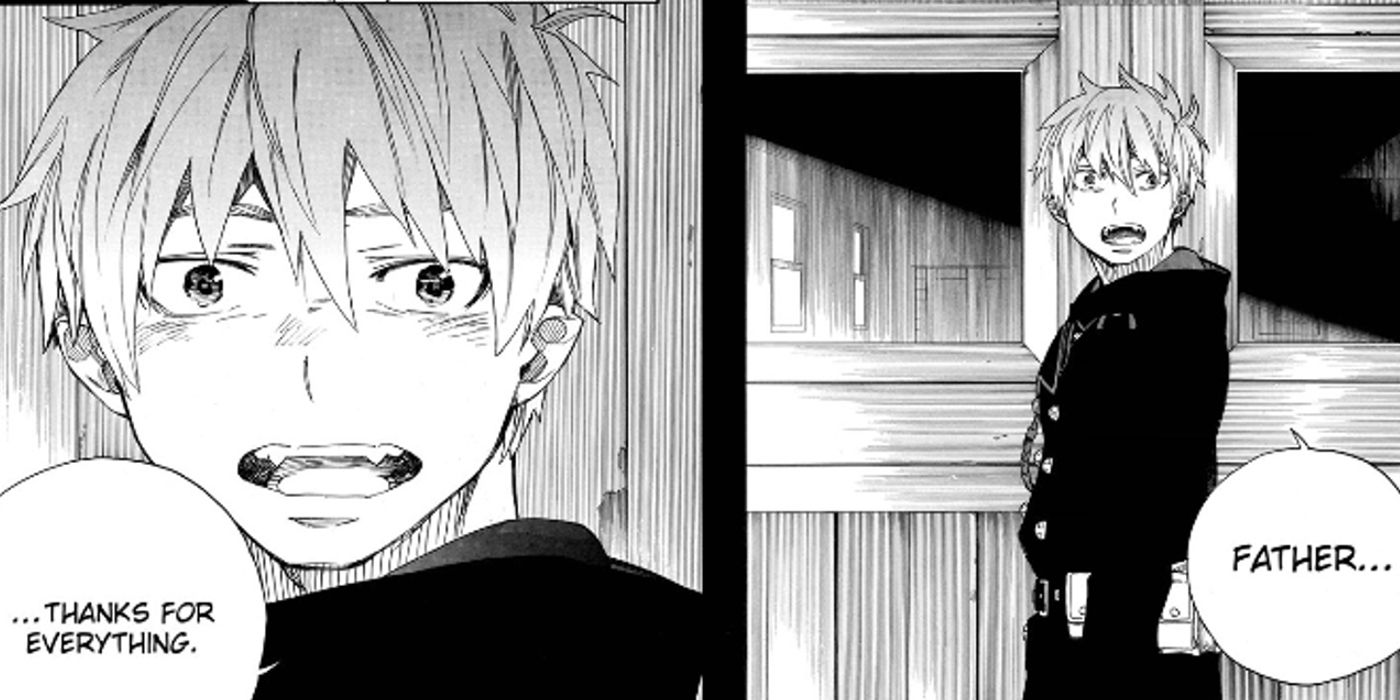Warning! Spoilers ahead for Naruto and Blue Exorcist chapter 132!
The perfect execution of how Blue Exorcist portrays the way in which Rin Okumura meets the late Shiro Fujimoto exposes all of the wasted potential Naruto squanders when the young shinobi has a chance to see his deceased parents.
Near the end of Blue Exorcist, before mangaka Kazue Kato put the series on a nearly yearlong hiatus that's still in effect, Rin received a special key from the mysterious Mephisto that allowed him to travel back in time. There, he witnesses the entire life of his mother Yuri Egin, who had been a mystery to him, all the way up to the tragedy that inevitably befell her. Afterward, in chapter 120, Rin travels back to his childhood home without the proper apparel that keeps him hidden, allowing Shiro to see him. The rules of this experience put many limitations on what Rin could do or say with his deceased loved one, increasing the tragic implications of the ordeal, much more than anything Naruto underwent when he met his mother Kushina.
In Naruto, the eponymous shinobi's deceased mother Kushina appears to him because her husband sealed her inside of their son so she could one day help Naruto control Kurama's powers. In this emotional meeting, Naruto gets reassurances directly from the person he needed to hear them from the most, who dispels any doubts about himself and his family that had plagued him all of his life. He not only gets answers to burning questions, but he even has the chance to embrace Kushina. While touchingly bittersweet, Rin's experience with Shiro adds another level of sadness that Naruto's format couldn't touch. Rin didn't have the capacity to tell Shiro who he was or how he felt.
What Rin did get out of the experience in Blue Exorcist, however, is that he could ask any question he wanted and not have to worry about getting some revised version of the truth in a way that a father would tell his son to make him feel better. In particular, Rin asks Shiro if it was hard being a dad. What Shiro tells him is undoubtedly a version of the truth that a man is willing to share with a stranger whom he'll probably never see again. And what he has to say is touching - in a much more emotionally heart-wrenching manner than anything Naruto's mother could have said. Regardless of the aforementioned limitations, there's a moment when Rin is actually able to call Shiro "father" since Shiro was a holy man: "Father...thanks for everything." The expression on Shiro's face gives readers hope that he might have realized who he's speaking to but leaves enough doubt to leave a sense of bittersweetness. This dynamic is lost in Naruto - not to mention the fact that Rin's bond with Shiro is stronger just because he actually grew up with him.
In regard to Naruto's father, with whom the young shinobi actually has a chance to fight alongside, later on, Blue Exorcist is setting the stage for at least Rin or his brother Yukio having to battle against a version of Shiro. As revealed in earlier chapters, Shiro is actually a clone that was used as a means to hopefully serve as Lucifer's vessel. And now the Illuminati - which is about to enter an all-out war against Rin, Yukio, and their friends - has unleashed another Shiro clone. Fighting alongside one's deceased father like in Naruto is one thing, but having to cross swords with the clone of one's father like in Blue Exorcist is something else entirely.


